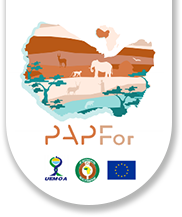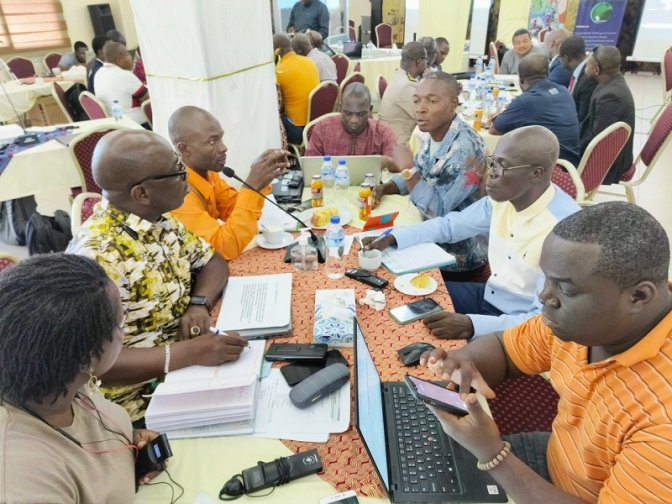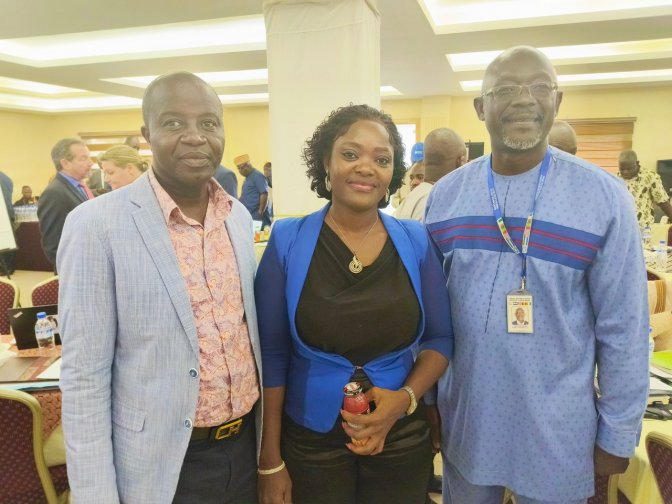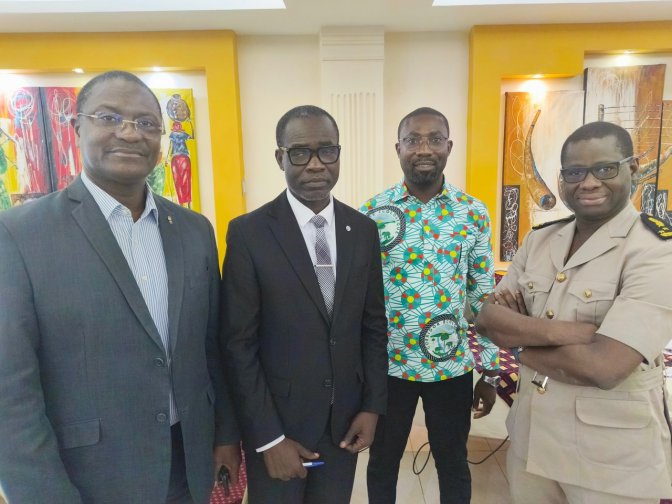Home / News / Liberia and Côte d’Ivoire reaffirm commitment to jointly protect TGKS (...)
Liberia and Côte d’Ivoire reaffirm commitment to jointly protect TGKS transboundary forest landscape
The West African countries of Liberia and Côte d’Ivoire are rich in biodiversity and endowed with natural resources. However, the exploitation of these resources coupled with agricultural expansion is putting immense pressure on the forest and its biodiversity.
In the Upper Guinean Forest in West Africa, this pressure is accelerated by the activities of poachers, illegal miners and hunters. This caught the attention of the Governments of Côte d’Ivoire and Liberia as well as donors and conservation partners. In the face of the alarming rate of biodiversity loss, conservation stakeholders are continuing efforts to protect the Taï-Grebo-Krahn-Sapo (TGKS) landscape, one of the last remaining portions of intact forest connecting Côte d’Ivoire and Liberia.
At a recent two-day event, the 7th Bilateral Steering Committee meeting of Taï-Grebo-Krahn-Sapo, stakeholders from Liberia and Côte d’Ivoire pledged to implement initiatives that will lead to the protection of the landscape and its endangered species. The two countries have demonstrated their commitment to the partnership as they have implemented different conservation projects ranging from training and deployment of eco-guards and law enforcement officers, and provision of livelihood support to forest-edged communities.
Research has shown that increasing the permanent presence of forest rangers, community eco-guards and data collectors is an effective means of stabilising and increasing wildlife populations and reducing anthropogenic threats in protected areas.
Communities must also be engaged, with a focus on key stakeholders such as hunters, to encourage participation in the conservation of their natural heritage and identify forest-friendly alternative livelihood practices.
The European Union-funded Support Programme for the Preservation of Forest Ecosystems in West Africa (PAPFor) is working through its implementing partner in TGKS, the German Agency for International Cooperation (GIZ). During the meeting, Vincent Beligné, GIZ-TGKS Technical Advisor said, “To protect the forest corridor fully, there is a need for urgent attention to address the challenges. I think the meeting was successful because many challenges were highlighted for possible solutions.”
The Taï-Grebo-Krahn-Sapo landscape stretches from the southeast of Liberia to the southwest of Côte d’Ivoire. It contains a large block of intact Guinean forest of which more than 7,000 km2 is protected, including Taï National Park, a UNESCO World Heritage site. Through the PAPFor programme, GIZ is engaging communities to improve on-farm production and support complementary agriculture compatible with cocoa production through agroforestry. It is also supporting the Protected Areas Authorities in the two countries to improve management effectiveness of their respective National Parks and Classified Forests within the landscape.
The bilateral steering committee has finalised a Memorandum of Understanding (MoU) between the two countries, which is pending review by the Ministries of Foreign Affairs in Abidjan and Monrovia before signing. At the close of the meeting, a joint action plan for ongoing and new activities on both the Liberia and Côte d’Ivoire sides of TGKS was developed, setting out the roles and responsibilities of all actors.




